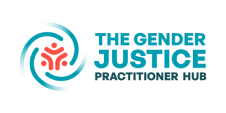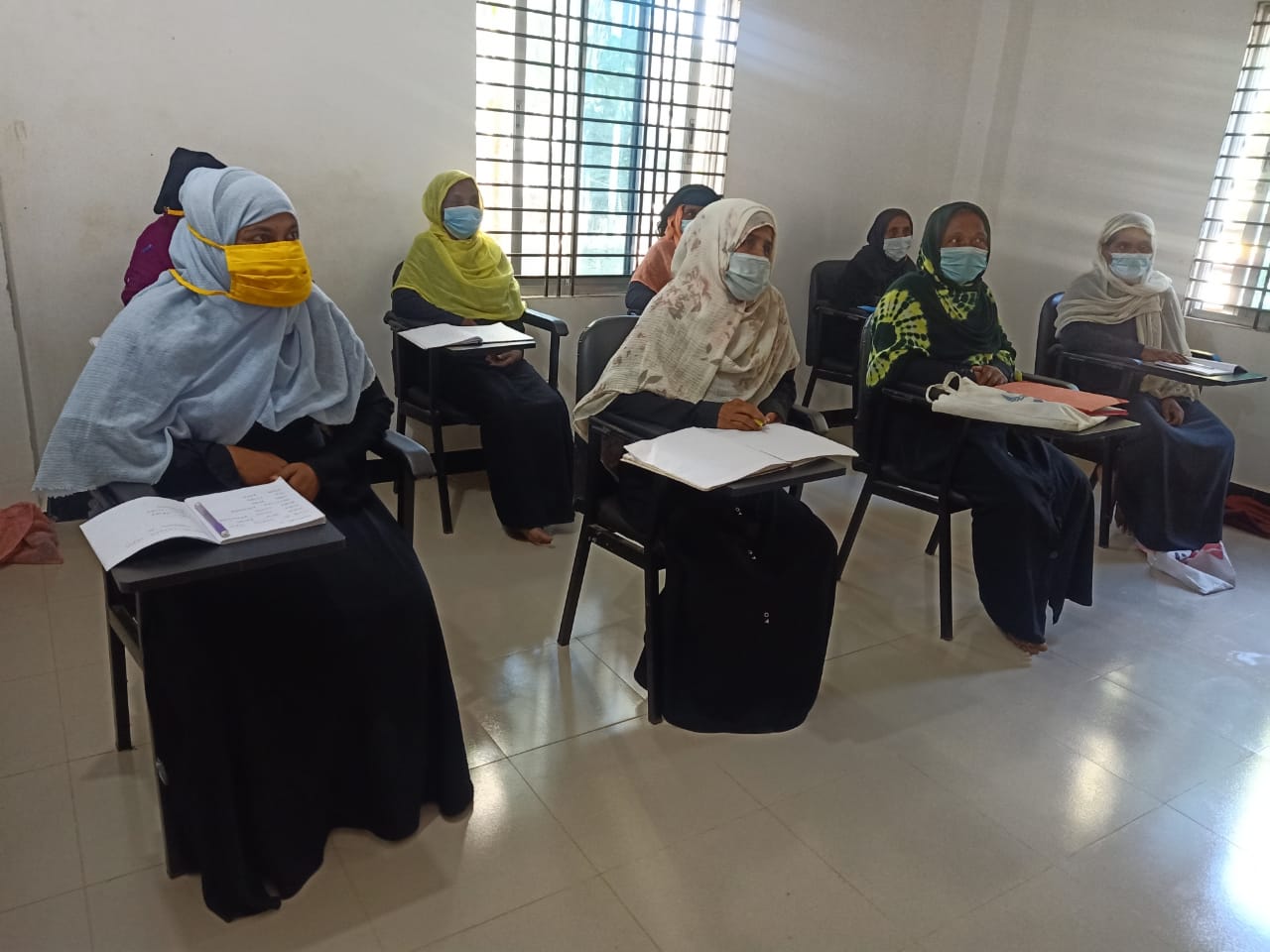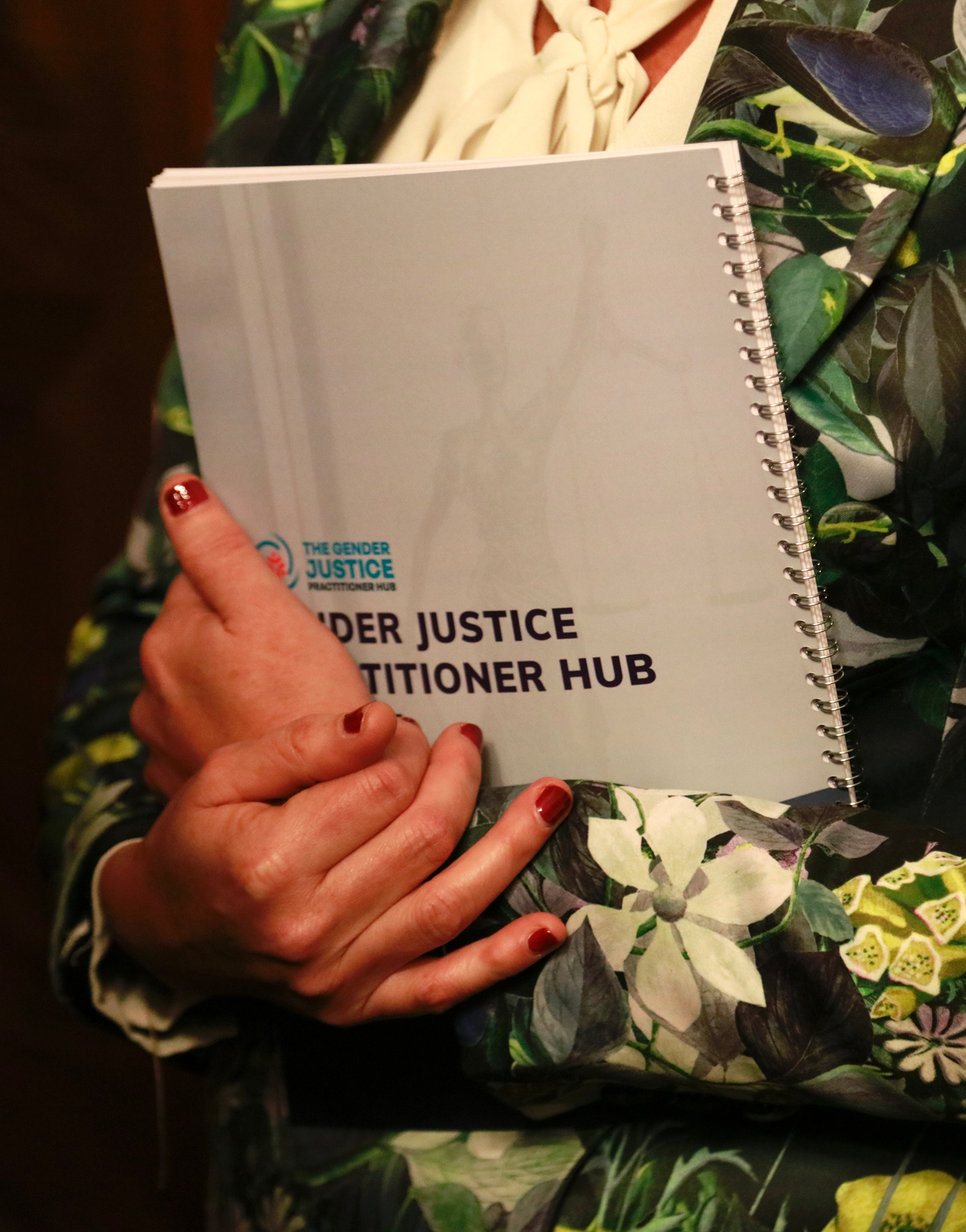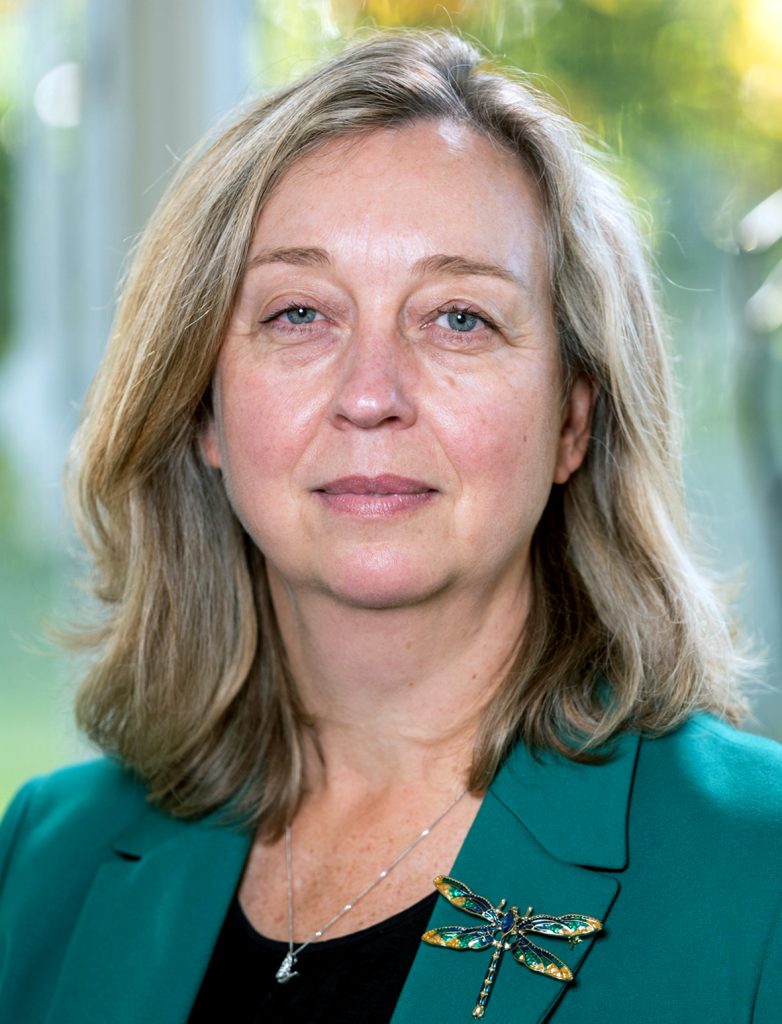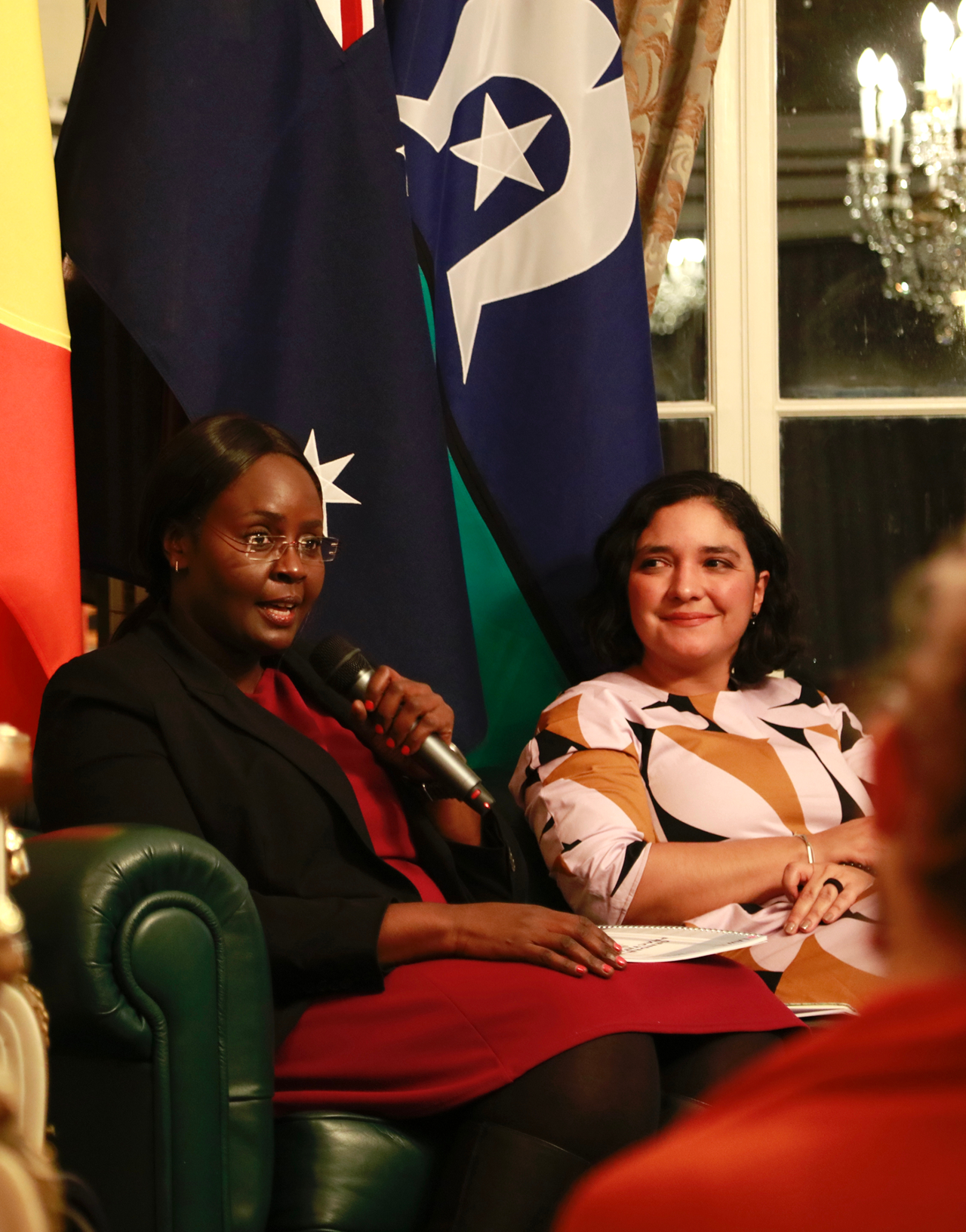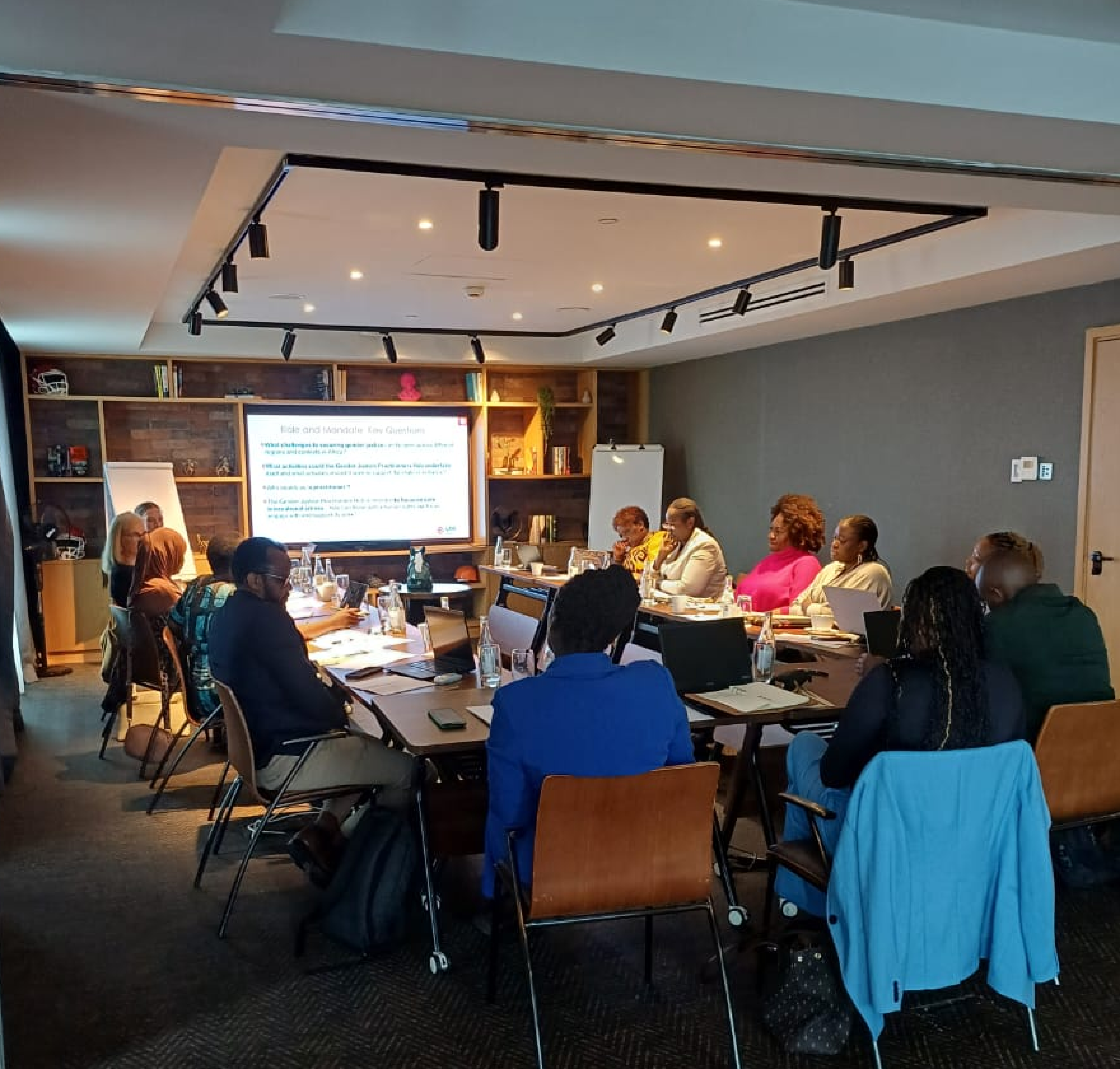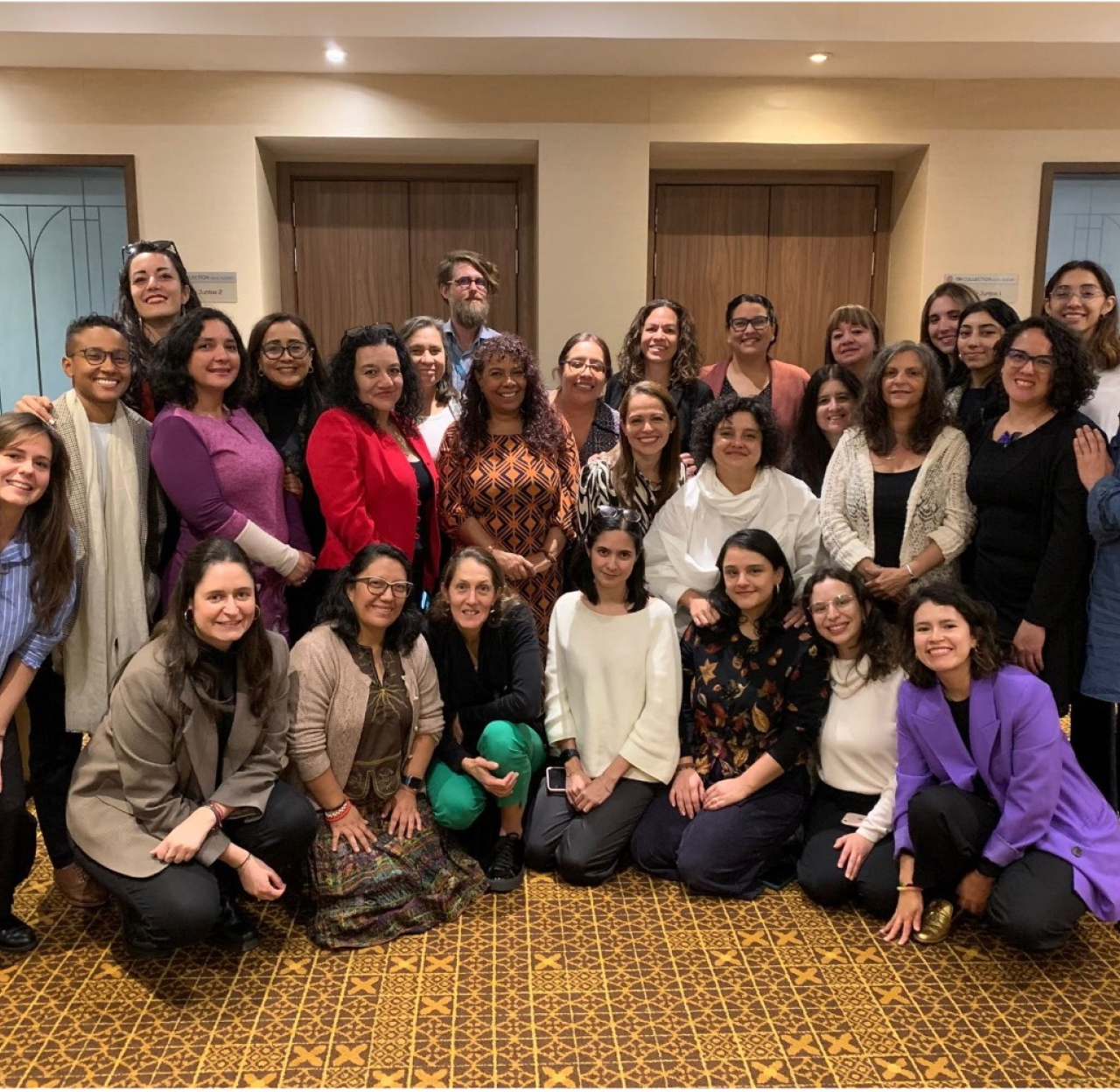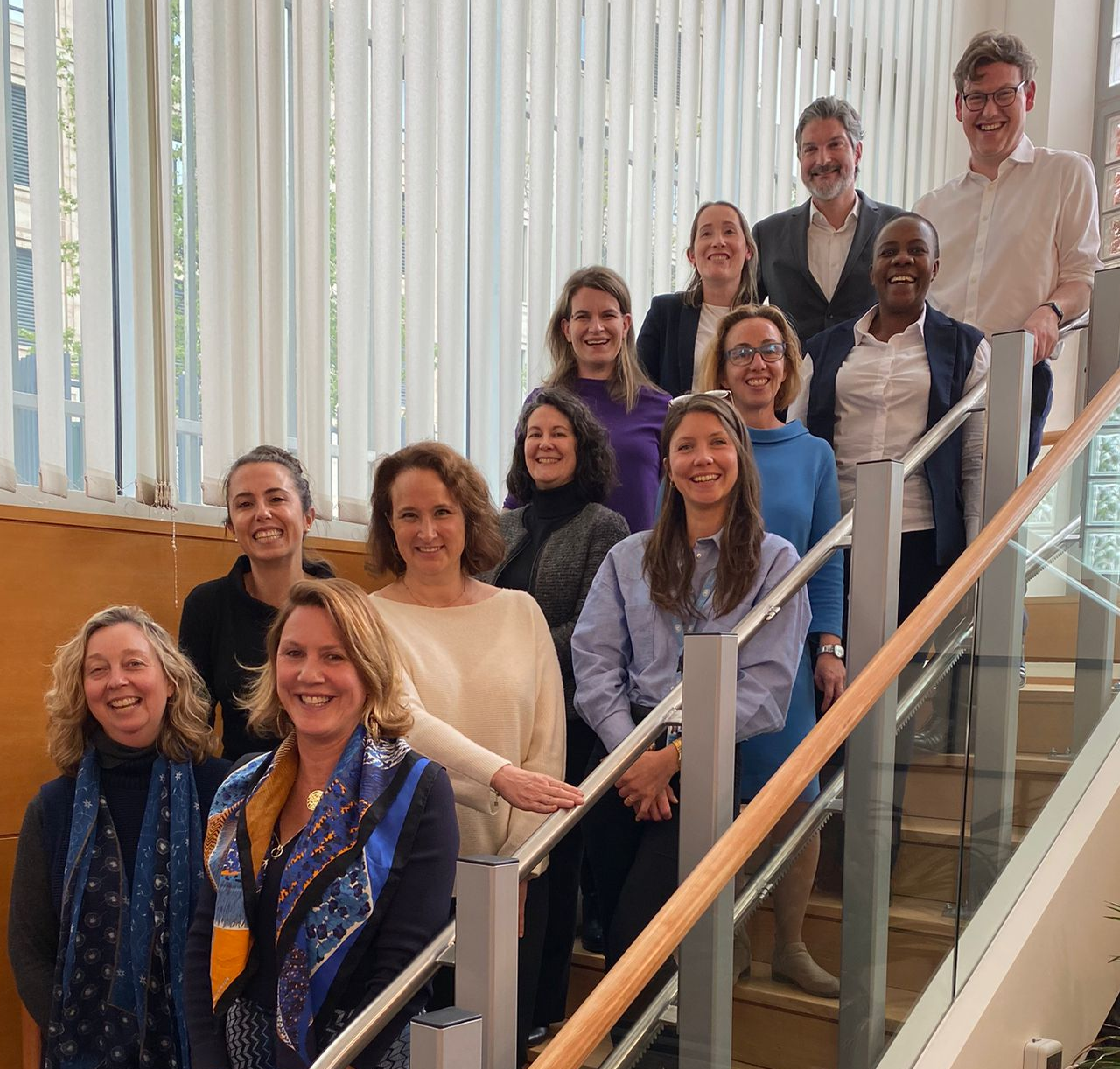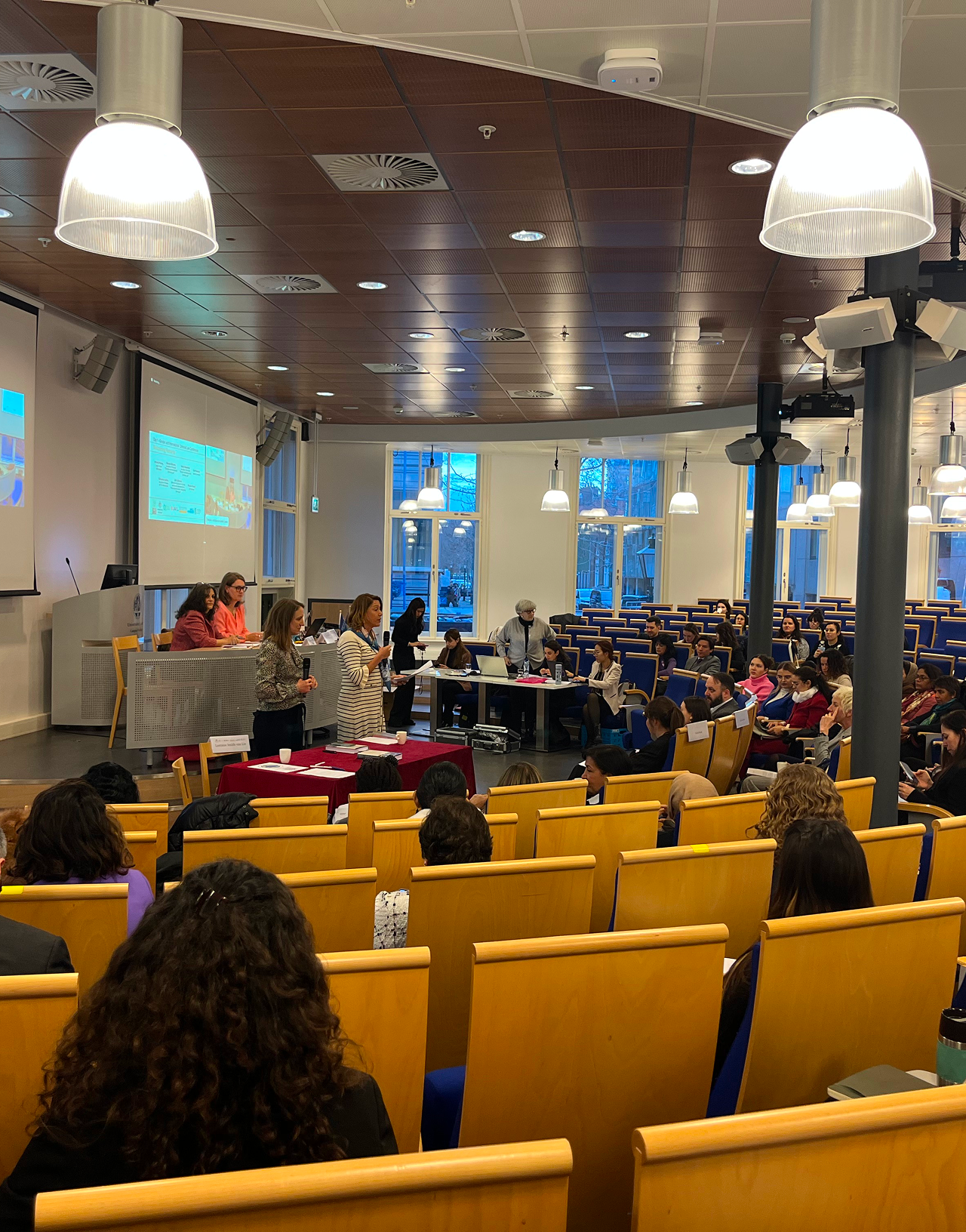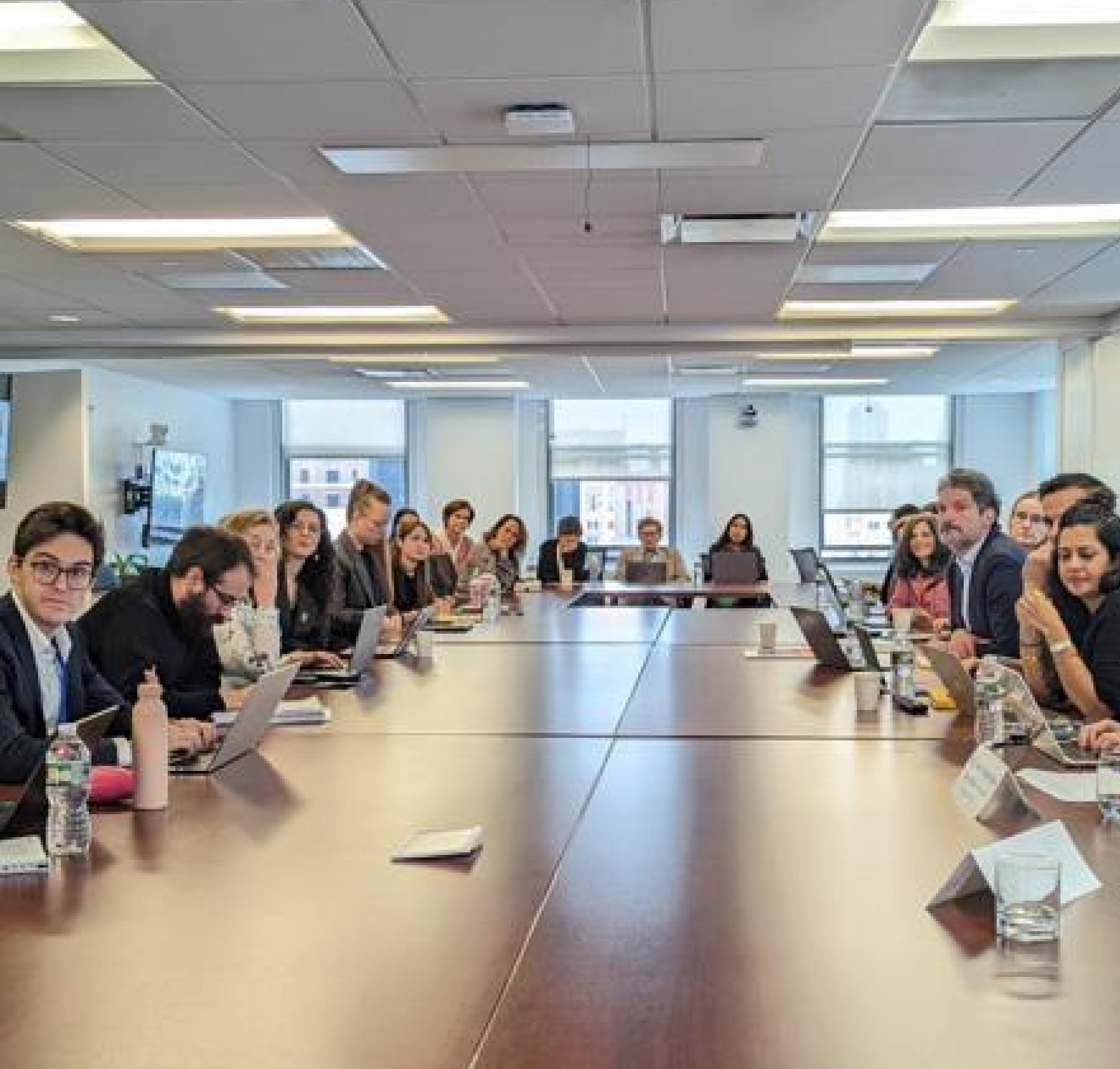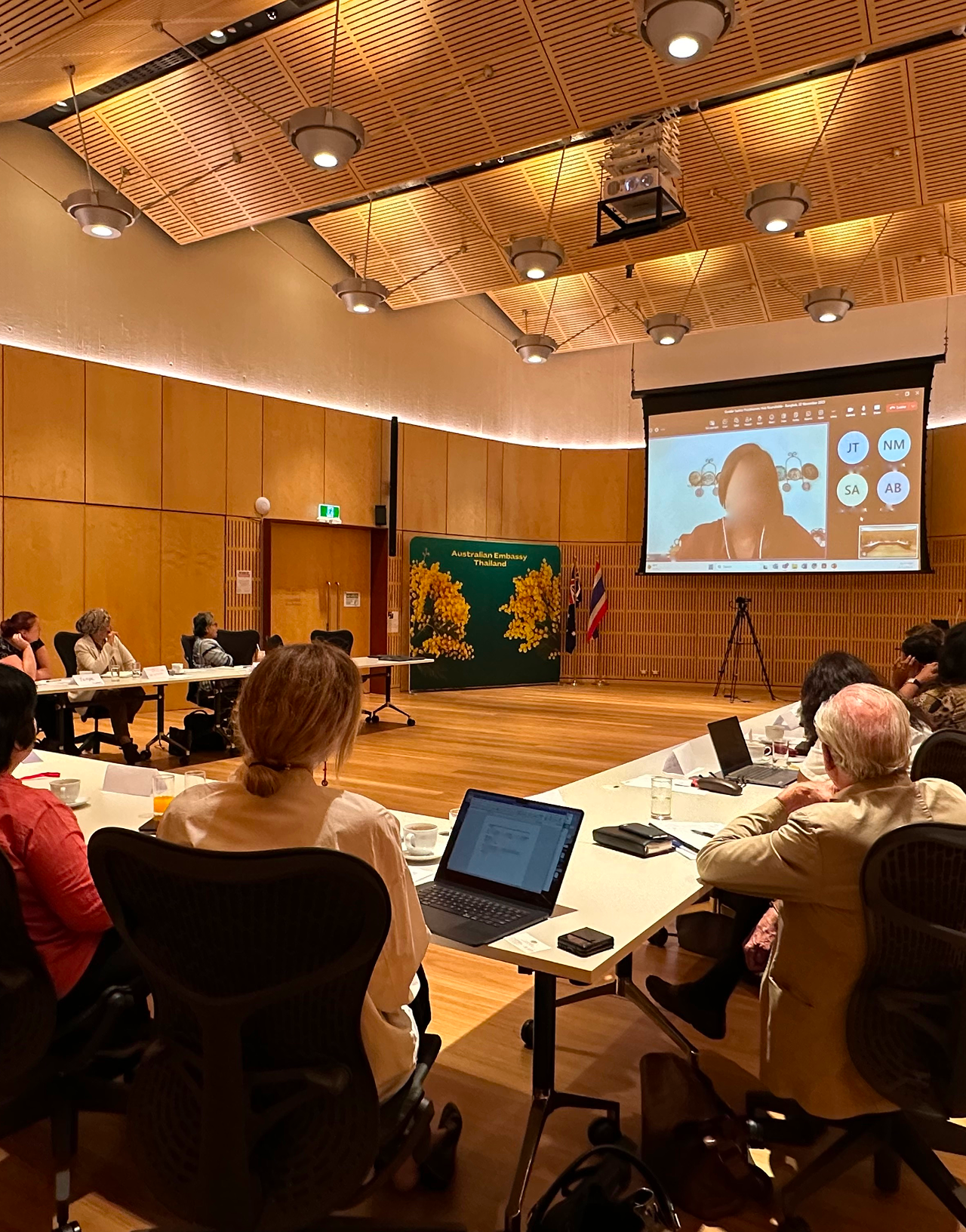The Gender Justice Practitioner Hub was launched at a side event to the 2024 Assembly of State Parties on 5 December 2024. The Keynote remarks were provided by Michelle Jarvis, Deputy Head of the IIIM Syria. Her remarks, in full are below:
Three weeks ago, I was standing in front of a lecture room full of students at Exeter Law School in the UK. My brief was to talk to them about ‘innovations and aspirations’ in international criminal law. A chance to reflect back over 24 years working as a practitioner at the coalface of developments in modern international criminal law.
Standing there in front of the next generation brought into sharp focus the question of what our aspirations for justice should be? What do we want to leave behind to the generations that will follow? And that question cut particularly deep for me because my daughter – now a student at Exeter – was in the audience. What should I tell them – what should I tell her – about our future aspirations?
The answer is that I want us to leave behind a world where there is ‘justice for all’. But I have seen in my 24 years of ICL practice, and even longer focusing on issues concerning gender and conflict, that the dominant systems on which our world is built are not fit for this purpose. They deter, rather than deliver, our inclusive justice aspiration.
I have seen this over and over again in the work that I’ve done on accountability processes for the former Yugoslavia, Rwanda and now for Syria. And the problem is much broader than that. We are seeing the impact of these dysfunctional systems play out in the news headlines every day, in ever increasing ways. Our systems of:
- Patriarchy and gender discrimination;
- Colonialism;
- Economic greed; and
- Fundamentally, our failure to see that we are all part of a connected web of life on this planet.
But let’s focus on the issue of gender discrimination. I have seen up close how structural gender discrimination drives violence during conflict. It then operates to obscure the voices and experiences of victims and survivors and block their access to justice.
Just in the relatively narrow arc of my own career, I’ve seen a steady succession of sign-posts marking the systemic gender justice obstacles. To recount just a few:
1996: I was a researcher at the University of Adelaide working on a project examining the distinctive impact of conflict on women. And the extent to which International Law responds… or does not respond. I remember the push back that we got about the very idea that men and women experience conflict differently. There was also the immense challenge of finding any information about the specific issues that affect women during conflict. Their voices and experiences were virtually erased from the history books.
1997: I was an intern at the ICTY assisting Patti Sellers in her role as Legal Advisor for Gender Issues with an assignment for the Akayesu case before the ICTR. The Akayesu indictment did not initially include any charges of sexual violence. The trial started, and women called to testify started describing rapes during the genocide. The Presiding Judge adjourned the trial and told the Prosecutor assess whether to amend the indictment. My task was to research whether it was possible to charge rape as genocide. Back then, this was an extremely novel idea and very controversial. But surely there could be no dispute that rape met the definition of serious bodily and mental harm, part of the actus reus of genocide? So long as it was carried out with the same genocidal intent as the killings? But there was intense pushback about applying a gender perspective to the crime of genocide, with fears expressed that it would ‘water down’ the seriousness of the crime.
Late 1990s and early 2000s: the first Srebrenica prosecution at the ICTY and the near failure to include the forcible transfer component of the case. The highly gendered events in Srebrenica are now well known: over 7,000 men and boys slaughtered en masse. Up to 25 thousand women and children forcibly transferred out of the Srebrenica enclave. Initially, the Prosecution considered only investigating the killing, and omitting the forcible transfer from the planned Srebrenica case file. This only changed by a twist of fate. Today, we know it was by looking at the combined impact of the killings and forcible transfer, that the picture of genocide was accurately revealed before the ICTY.
The mid-2000’s: a duo of trial judgements from the ICTY examining sexual violence crimes in Kovoso that artificially isolated sexual violence out from other violent discriminatory acts and imposed higher evidentiary standards. These problematic precedents were ultimately corrected on appeal, but not without significant internal pushback about the appropriateness of appealing.
The last years of the ICTY’s work: for me, many hours spent meeting with the Mothers of Srebrenica. These were women who had lost male family members – some as many as 17—during the genocide in Srebrenica. The traumatic impact was profound. But it was also incredibly humbling to see their resilience. And their expertise! Some of them knew as much about the technicalities of the proceedings at the ICTY as any of our lawyers. For me, it was an unprecedented window into the gendered impact of conflict and the importance of hearing the voices of those disadvantaged by gender discrimination. Yet, less than 13 % of witnesses at ICTY were women.
2017: and the start of my work at the International Impartial and Independent Mechanism for Syria – the IIIM. The rare opportunity to build a gender-sensitive institution from the ground up and to integrate a gender analysis as part of the core daily work of the Mechanism. But we were confronted by the paucity of practical tools and precedents to guide us, the need to craft everything from scratch, and the absence of effective resources to help navigate the significant change management aspects of the process.
2018: The intensification of the IIIM’s two-way dialogue with affected community civil society actors and the stark under-representation of women as well as the degree of effort constantly required to address this.
Throughout the IIIM’s case work: the paucity of statements from women and girls in the documentation of crimes in Syria that we collected from other justice actors. For example, numerous cases of chemical weapons have been documented in Syria. Women and girls were present in large numbers among the civilian victims of these attacks, but their experiences were not reflected in the documentation. And while the IIIM has committed to filling these gendered evidentiary gaps, there are pervasive structural obstacles to surfacing the evidence, including cultural norms that keep women out of public places and reduce their access to resources and official documentation.
And throughout all of this, there is the situation of persons of diverse sexual orientations and gender identities – whose experiences have rarely been effectively addressed by accountability actors. In the context of Syria, even civil society actors can be reluctant to focus on these issues due to fear of retribution.
That is just a snapshot of what I’ve experienced through my engagement with justice processes. Our collective list of obstacles confronted is much, much longer.
I have also seen what a complicated project it is to address these ingrained structural factors and deliver more inclusive justice. These discriminatory structures operate both within the affected communities – and among us as accountability actors.
We have to be honest. We have barely begun to recognize the importance of a comprehensive intersectional gender analysis in ICL. For many, gender, if thought of at all, still equates with interviewing sexual violence victims.
We have so many important new frontiers still to address. To name just a few:
- Discussions are now under way about whether the crime of gender apartheid should be recognized;
- A gender analysis needs to extend through to categories of crimes where we haven’t traditionally thought of it – like the crime aggression;
- And we need to turn in earnest to the issue of gender-sensitive institution building for accountability mandates – a topic that has barely registered a flicker of attention up until now.
The overall picture is one of narrow and fragmented approaches. Each new accountability mandate struggles to address the same biased and exclusionary practices all over again. Our progress is fragile and it the risk of regression is alarming.
The need for a more sustained, structural solution, has sparked the idea for the Gender Justice Practitioner Hub. In very simple terms, the aim of the Hub is to:
- connect practitioners;
- to act as a knowledge repository; and
- to be a helpdesk to make it easier for practitioners to pursue inclusive justice.
I could see, from my own limited vantage point in this work over many years, the compelling need for a vehicle to connect and support practitioners across different justice processes and over time.
But over the past 18 months during the scoping phase for the Hub, I’ve been stunned by the depth of the sentiment across different regions of the world for the Hub to play a far more ambitious role. Calls for the Hub:
- to be a catalyst for systems change;
- to foster a community, not just of practitioners, but of passion and purpose. To help address the sense of separation and disempowerment that currently pervades so much of our work.
Whether the Hub can make a contribution to such an audacious vision remains to be seen – but I think we should try. As I told the students at Exeter University, nothing that we have delivered as part of the international justice project over the past 30 years has been easy – most of it has seemed impossible at the beginning.
The path forward is messy, unclear and will no doubt be filled with missteps. But in the words of Franklin Roosevelt, as more recently popularized by Brené Brown. And paraphrased by me… because the original was not exactly gender inclusive.
It is not the critic who counts; not the one who points out how the strong stumble, or where the doer of deeds could have done them better. The credit belongs to those actually in the arena; who strive valiantly; who err, who come up short again and again, because there is no effort without error and shortcoming; but who do actually strive to do the deeds; who at the best know in the end the triumph of high achievement, and who at the worst, if they fail, at least fail while daring greatly.
So my invitation to all of you tonight is to step into the arena with us and let’s see what we can collectively achieve.
You have come here tonight with many different backgrounds, functions and perspectives on gender justice. We need help from you all:
- From those of you who are already working on important gender justice initiatives and could collaborate with the Hub;
- From those of you who are practitioners and may be able to draw upon the Hub for support to strengthen your work;
- From those of you within the diplomatic community who could lend your political and financial support to the goal of gender justice;
- From those of you from feminist foreign policy countries – or any country – who might see intersections between your vision and the goal of creating a community of passion and purpose around gender justice; and
- From anyone who might have a connection to suggest or an idea that might help amplify the Hub’s reach.
Like the flutter of the proverbial butterfly’s wings, we never know what small action could trigger cascading change towards a world where we truly have justice for all.
